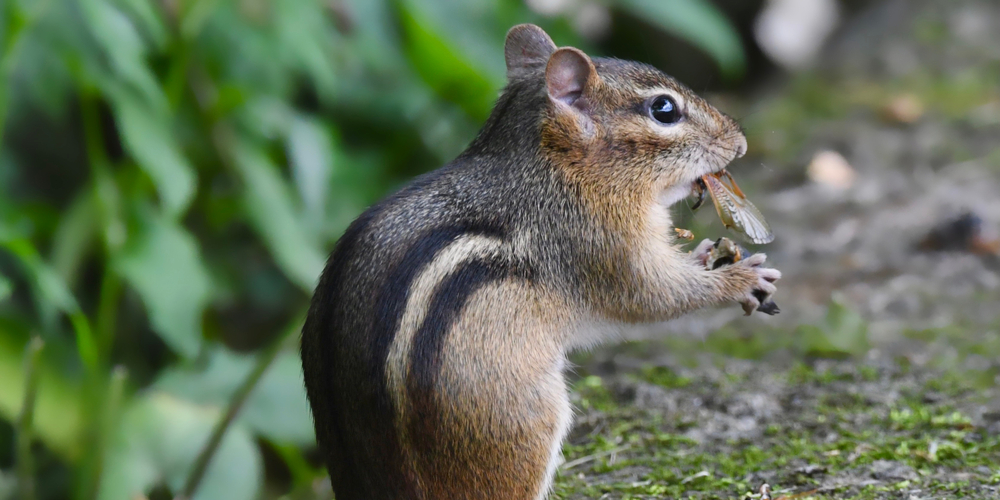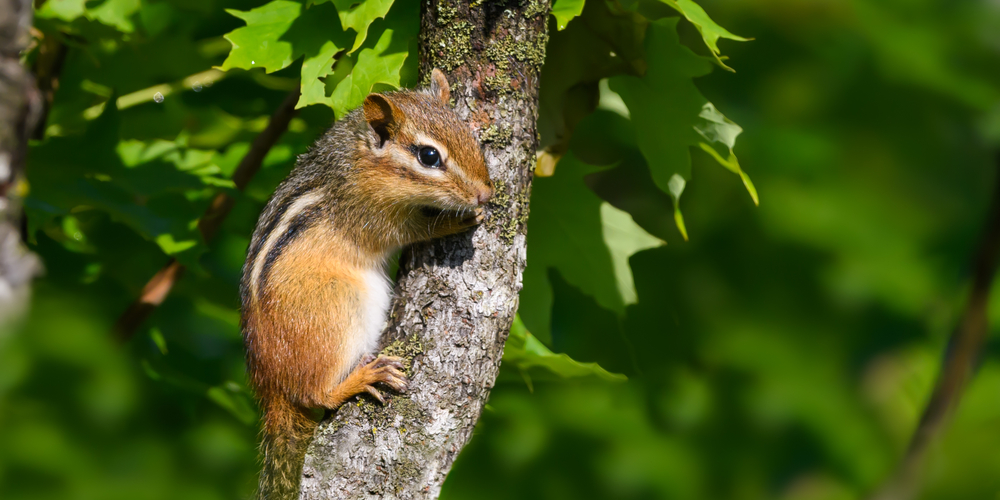Chipmunks are often seen in the wild eating a variety of different foods. While many may consider these adorable mammals as a creature that eats only fruits and nuts, they are considered omnivores, meaning they will consume other animals if available. These tiny creatures have become very adaptable to survival simply because they are opportunistic. But do chipmunks eat blueberries?
Blueberries for Chipmunks
If you were wondering if chipmunks enjoy blueberries, the answer is yes. Chipmunks love blueberry bushes as well as other berry bushes that grow in their environment and often are the culprits of stealing from gardens that grow these enticing treats. Being a superfood since they are packed with nutrition and bearing a wonderful flavor as well, chipmunks cannot resist a healthy blueberry bush or blueberries offered as treats.
Chipmunk Diet in the Wild
In the wild, chipmunks are known to consume grain, fruit, nuts, insects, bird eggs, and even baby mice and freshly hatched birds. Ultimately, they tend to consume whatever is available at the time. Due to their wide variety in the diet, they share a significant responsibility in spreading seeds.
While they do not particularly look for specific objects to consume, they will take opportunities to eat helpless smaller animals if they are left unprotected. Any chipmunk that stumbles upon a nest will likely terminate any babies within it and any other potential food they may find.
Chipmunk Diet in Captivity
Sometimes chipmunks need a little assistance from humans. Rescues and wildlife rehabilitation centers that take in abandoned baby chipmunks, or even injured adult ones, have to work out a diet that is best suited to the chipmunk they are caring for. The following are beautiful examples of what to give chipmunks that are in captivity:
- Grains – a chipmunk’s diet should be about fifty percent grains, including corn, oats, barley, wheat, and millet spray.
- Nuts – Unsalted nuts make for a good treat, especially pine nuts. Ensure nuts are raw and untouched by the added oils, salts, and flavorings found on most stores’ shelves.
- Fresh fruits – Chopped fresh fruit such as pears, apples, oranges, and bananas are all packed full of vitamins and antioxidants. These are wonderful as a part of a daily diet.
- Fresh vegetables – Veggies such as sweet potatoes, carrots, bean sprouts, and tomatoes are all perfect for your chipmunk. Make sure all offerings are washed thoroughly and cut into pieces that can fit into their mouths.
- Weeds and seeding grasses – Seedling dock, chickweed, and shepherd’s purse are all safe and favorable options for chipmunks.
- Cuttlefish bone – These provide an excellent source of much-needed calcium and help maintain the length of a chipmunk’s teeth. Like all rodents, the teeth of a chipmunk continuously grow throughout their lifetime, and gnawing is crucial to keep them cut down. Without something to chew, they would inflict accidental damage to themselves as their teeth grow too large for their mouths.
It’s important to remember that chipmunks love to store food as it is essential to their well-being in the wild. Therefore, if keeping a chipmunk in captivity, check their food stores daily to make sure there is no moldy food present.
While you may see many seed-based diets on the shelves for small rodents, keep in mind these are not suitable for chipmunks. Be sure to keep to a variety of foods for them, so they benefit from the many vitamins and minerals their bodies require.
Wrap Up
So, do chipmunks eat blueberries? Yes, they do, and they love it. In conclusion, if you have a chipmunk in captivity, offer it blueberries. They are healthy and, above all, one of the chipmunk’s favorite foods.

